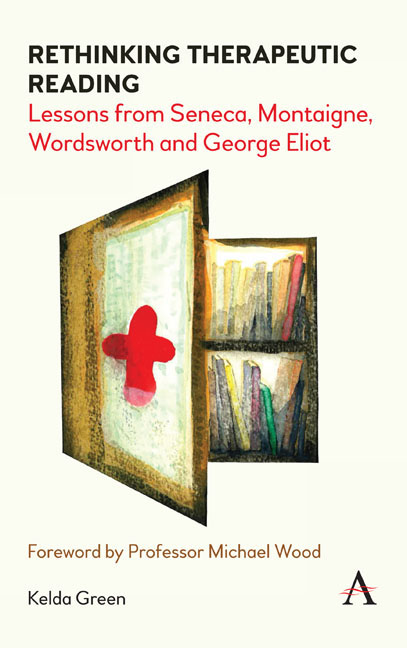4 - Therapy and the Novel: George Eliot, after Wordsworth
Published online by Cambridge University Press: 16 July 2020
Summary
George Eliot and William Wordsworth
In Wordsworth and the Victorians, Stephen Gill describes George Eliot as ‘Wordsworth's ideal reader’, so in-tune was she to the poet's ideas. In turn, while working on Silas Marner, George Eliot imagined Wordsworth as her own ideal reader, admitting in a letter to her publisher that ‘it was not a story she believed anyone would be interested in, but myself, (since William Wordsworth is dead)’.
This chapter begins by exploring the connections between George Eliot and Wordsworth, focusing in particular on her earliest works – Scenes of Clerical Life, Adam Bede, The Mill on the Floss and Silas Marner – which can be read as prose translations of Wordsworth's poetry. A second relationship – that of George Eliot with the new discipline of psychology – is then examined, with particular consideration given to the ways in which her realist novels can be regarded as literary translations of this new science.
The sense of concordance that George Eliot felt towards Wordsworth was a steady feature of her life, from her youth, when she first read his poetry. In 1839, on her twentieth birthday, the then Mary Ann Evans wrote of her admiration for ‘our incomparable Wordsworth’ in a letter to a friend, remarking that, ‘I have been so self-indulgent as to possess myself of Wordsworth at full length, and I thoroughly like much of the contents of the first three volumes […] I never before met with so many of my own feelings, expressed just as I could like them.’ In Wordsworth she had found a compatriot in feeling. Margaret Hamans states, ‘Had there been no Wordsworth, Eliot would still have discovered for herself what are commonly taken to be their shared beliefs in the value of childhood and rural life and in the necessity of constant interchange between feeling and knowledge.’ She argues that Wordsworth’s poetry deals in foundational truths which belong deep within human roots and are already known at some level by many of his readers. The relationship between Wordsworth and George Eliot is therefore not simply one of linear transfer or passive inheritance from the poet to the novelist, and is all the more Wordsworthian in nature because of this.
- Type
- Chapter
- Information
- Rethinking Therapeutic ReadingLessons from Seneca, Montaigne, Wordsworth and George Eliot, pp. 67 - 96Publisher: Anthem PressPrint publication year: 2020



